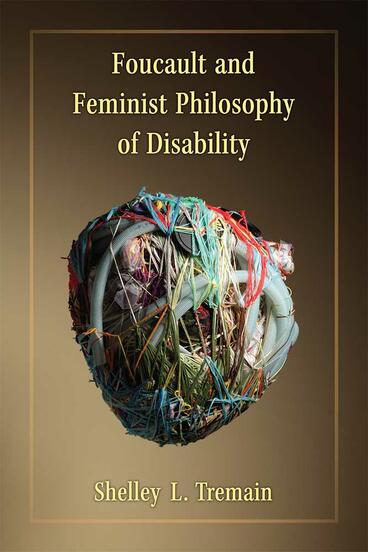Foucault and Feminist Philosophy of Disability
Addresses misrepresentations of Foucault’s work within feminist philosophy and disability studies, offering a new feminist philosophy of disability
Description
Foucault and Feminist Philosophy of Disability is a distinctive contribution to growing discussions about how power operates within the academic field of philosophy. By combining the work of Michel Foucault, the insights of philosophy of disability and feminist philosophy, and data derived from empirical research, Shelley L. Tremain compellingly argues that the conception of disability that currently predominates in the discipline of philosophy, according to which disability is a natural disadvantage or personal misfortune, is inextricably intertwined with the underrepresentation of disabled philosophers in the profession of philosophy. Against the understanding of disability that prevails in subfields of philosophy such as bioethics, cognitive science, ethics, and political philosophy, Tremain elaborates a new conception of disability as a historically specific and culturally relative apparatus of power. Although the book zeros in on the demographics of and biases embedded in academic philosophy, it will be invaluable to everyone who is concerned about the social, economic, institutional, and political subordination of disabled people.
Shelley L. Tremain holds a Ph.D. in Philosophy and has taught in Canada, the U.S., and Australia. This book was awarded the 2016 Tobin Siebers Prize for Disability Studies in the Humanities. The author was also the 2016 recipient of the Tanis Doe Award for Disability Study and Culture in Canada.
Reviews
“A much-needed contribution to the general intellectual discussion of disability, to Foucault studies, and to feminist theory. Tremain plows into some central tenets of disability theories and some of the most taken-for-granted feminist criticisms of Foucault. She also indicts professional philosophy in North America for its structural exclusion of disabled scholars. The evidence she presents and the arguments she makes are strong and sound.”
—Ladelle McWhorter, University of Richmond
“Foucault and Feminist Philosophy of Disability offers a master class on Foucault and feminist theory as it addresses the dangerous and biased exclusion of disability within academic philosophy. Its most powerful gifts are the tools it gives readers for recognizing the same exclusion and discrimination within their own fields—it is a book that has the potential to change academia.”
—Jay Dolmage, University of Waterloo“An important work not just for those working on disability, but for anyone working on social justice, broadly understood. It is clearly argued, full of original ideas and insightful argument, and also a significant political intervention into debates over philosophical method. Tremain is unrelentingly materialist and structuralist in her analysis of ableist, sexist, and racist oppression. The book is an urgent call for all of us to do better.”
—Sally Haslanger, Ford Professor of Philosophy and Women’s and Gender Studies, Massachusetts Institute of Technology
“Sets the scene for philosophy of disability and opens new paths for critical disability studies . . . . Tremain carefully corrects misreadings and misappropriations of Foucault among disability theorists and feminists alike, and shows how these thinkers inadvertently reinscribe the status quo when it comes to theorizing disability. In working through the many ways disability is constructed, the book radicalizes philosophical consideration of topics ranging from epistemic injustice to stem cell research."
—Melinda Hall, Stetson University
"Tremain’s book is rich with ideas about how disability, philosophy, and feminism fit together. Her work intervenes in a conversation about disability and philosophy using research from a reconstructive-conceptual and metaphilosophical sphere, arguing that the two inform (and co-constitute) each other. ... Foucault and Feminist Philosophy of Disability is useful not only for scholars working in disability studies or academic philosophy but for all scholars who are interested in interrogating complex power relations in a way that attends to culture, history, and materiality. Tremain’s analysis is a masterful example of complex theoretical thinking supported by meticulous research and close reading."
- Tabetha K. Violet
-- International Journal of Feminist Approaches to Bioethics
Winner: 2016 Tobin Siebers Prize for Disability Studies in the Humanities
- Tobin Siebers Prize

